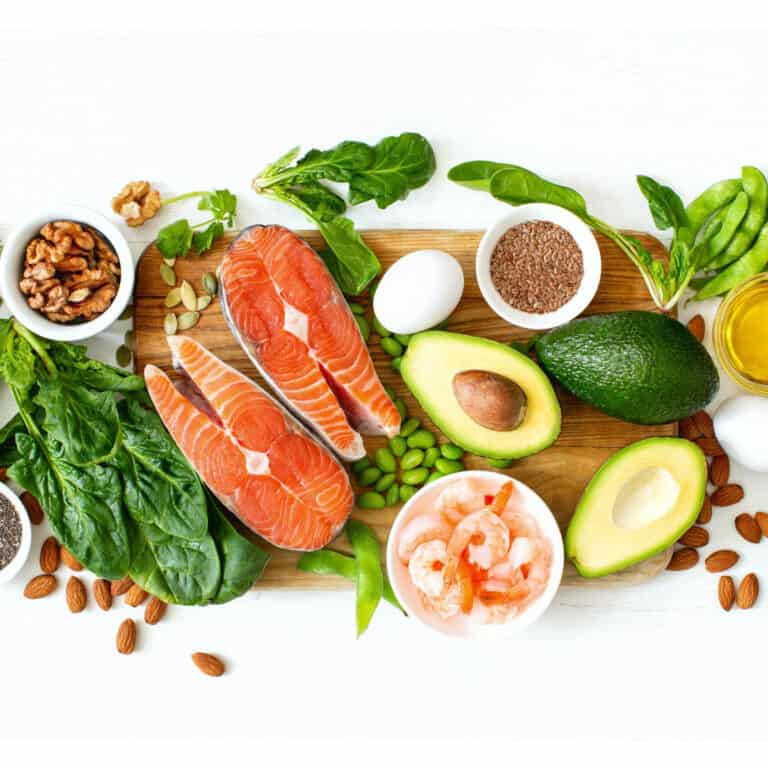What are the best foods to lower cholesterol? Did you know that by changing some brands of food you eat and increasing certain foods you may be able to have a positive effect on your cholesterol level naturally?
Firstly let me say, always be guided by your doctor. Website advice is general. It cannot take the place of a one-on-one consultation with your nutritionist, doctor, or other health professional.
Cholesterol Management
Cholesterol management is important for maintaining good cardiovascular health. Incorporating specific foods into your diet can play a significant role in achieving this. You can find out more about cholesterol levels in this article. Here is a look at some of my favourite ways to combat climbing cholesterol levels. Employing just a few of these diligently can mean remaining medication-free.
Oats: Beta Glucan Powerhouse
- Oats are a cholesterol-fighting champion, thanks to beta-glucan, a soluble fiber that prevents the absorption of cholesterol in the gastrointestinal tract. Additionally, beta-glucan aids in increasing the removal of cholesterol through excretion in bowel movements. Including oats in your diet, whether through oatmeal or other oat-based products, can contribute to better cholesterol management. Choose minimally processed oats such as traditional rolled oats ahead of minute oats. Consider making overnight oats for a quick summer breakfast or a warming bowl of hot oats in winter.

Fatty Fish: Omega 3 Rich Super Food
- Consuming fatty fish, such as salmon, mackerel, or trout, 2-3 times a week provides a powerful boost to your heart health. This approach works by not only reducing the overall meat intake in the diet but also by increasing the intake of omega-3 fatty acids. Omega-3s are renowned for their ability to lower triglyceride levels in the body, contributing to improved cholesterol profiles. Omega 3 is also a powerful anti-inflammatory which may also have a secondary positive effect on cholesterol levels. Each serving of fish should be between 100-125g.
Let’s Connect
I share nutritional information and delicious, healthy recipes on social media. If you would like to connect you can find me here:
3. Beans: Fiber-Rich Superstars
Beans: Fiber-Rich Superstars
- Beans are an excellent source of soluble fiber. Soluble Fiber is a type of fiber that binds with cholesterol and helps remove it from the body. Everyone should be aiming for a daily intake of 20-35 grams of fiber, with 5-10 grams coming from soluble fiber. Fiber is found in plant-based foods such as fruits, vegetables, beans, wholegrains, and legumes. Incorporating beans into your meals, whether black beans, lentils, or chickpeas, is a tasty and effective way to boost your fiber intake and support cholesterol reduction.
Plant Sterol: Nature’s Cholesterol Managers
- Products fortified with plant sterols can be valuable tools in the battle against high cholesterol. Plant sterols, also known as phytosterols, are compounds found in plants that have a similar structure to cholesterol. When consumed, they compete with cholesterol for absorption in the gut, ultimately leading to lower cholesterol levels being able to be absorbed into the bloodstream. Including plant sterol-enriched foods, such as certain milk, Weet-bix, or yogurts, in your diet can contribute to a holistic approach to cholesterol management. I particularly recommend the Heart Active brand of Plant Sterol milk with Plant sterols Weet-bix, as I have had good clinical results. Please note for Plant sterols to be a benefit they have to be taken in a therapeutic amount which is 2-3 serves daily. A serving of Weet-bix with milk would be one serve. Alternatively, a glass of milk in your tea or coffee throughout the day and a serving in the breakfast cereal of your choice would also be the required 2 grams of plant sterols.

Hydration for Heart Health: The HDL Connection
- Beyond consuming specific foods, the role of hydration in cholesterol management should not be overlooked. Studies have suggested a positive association between hydration and increased levels of high-density lipoprotein (HDL) cholesterol, commonly known as the “good” cholesterol. HDL cholesterol plays an important role in transporting excess cholesterol from the blood vessels to the liver for removal, thus reducing the risk of arterial plaque formation. Staying well-hydrated supports optimal blood circulation and overall cardiovascular health, potentially contributing to higher levels of HDL cholesterol. Make it a habit to maintain adequate fluid intake through water and herbal teas. Consuming hydrating foods like fruits and vegetables can support your heart health by adding fiber and fluid to your diet.
In conclusion, adopting a diet rich in oats, fatty fish, beans, and plant sterols can be a strategic move in achieving optimal cholesterol levels. As always, it’s essential to consult with a healthcare professional or a registered dietitian for personalized advice tailored to your specific health needs and goals.

Thank you for visiting me.
I hope you have enjoyed this article. Please feel free to leave a message, rating, or comment below so others can know your thoughts.
Your words may help someone else.
Positive Vibes
j xx






